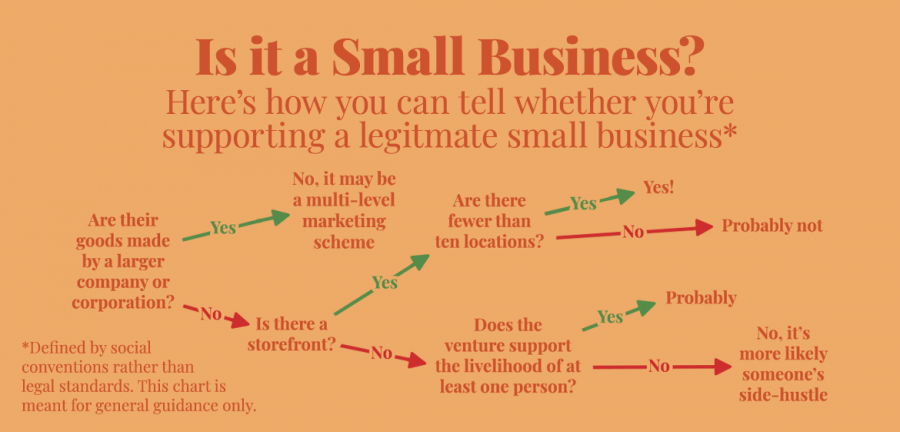Notorious CMC: Small business means more than just size
Over the course of the past year, the pandemic has taken an immense financial toll on small businesses, which have had difficulty keeping up with ever-changing regulations while promoting themselves to customers. As a result of this struggle, many have taken to patronizing these establishments, leading to the birth of the “support small businesses” movement.
Though this campaign has had great success, the definition of a small business has grown vague over time, with many misconstruing the term for personal gain. Though local shops are certainly worthy of people’s support, it’s important to distinguish between small businesses and mere hobbyists, the latter of whom are taking blatant advantage of this movement, and, in the process, robbing those truly deserving their support.
The movement first came about as a way for people to assist their communities, by protecting the businesses unique to their respective areas and reinvesting in the local economy. Especially during the lockdowns, it has been vital to support them through financial hardship.
At the same time as this economic downturn, many who have grown bored throughout the pandemic have taken up hobbies to pass the time, starting “small businesses” that sell things like soap and confections. They are often active on social media, promoting themselves as “small businesses” when, in reality, they’re just hobbyists. These individuals need to stop misusing the small business label for personal gain, as it puts them in direct competition with legitimate stores.
Not to mention that there are a variety of young entrepreneurs selling wares in multi-level marketing schemes (more commonly referred to as MLMs), whose profits will eventually land in the hands of large corporations. Businesses run by individuals without storefronts nor employees simply aren’t worthy of sporting the “small business” title, because people looking to support a small business intend to support local landmarks and lower unemployment rates in their communities, not entertain bored young adults with a side-hustle.
This isn’t to say that none of these hobbyists are struggling—such endeavors can be a profitable way to help make ends meet during hard times. However, these creators are engaging in direct competition with local employers, regardless of whether they sell the same goods.
People only have a finite amount of money to spend, and when they choose to buy from one individual, an actual business with employees and a storefront is missing out on that support. The obstacles one must face in order to establish themselves as a physical store are a barrier hobbyist creators unfairly bypass by labeling themselves “small businesses.” Not to mention that in the vast majority of cases, hobbyists aren’t using their ventures as their main source of income; they often already have a full-time or part-time job to support themselves while these side gigs are simply used to earn a little extra spending money.
While at the end of the day, people are free to call themselves whatever they’d like online, I urge those aren’t solely reliant on their venture to opt for a different label, one which doesn’t mislead buyers into thinking that they are supporting their community in a way that is only achievable with bona-fide small businesses. As for consumers, one can only hope that they will do their research before each purchase and ensure that they’re supporting a legitimate small business.
Your donation will support the student journalists of Diamond Bar High School. Your contribution will allow us to purchase equipment and cover our annual website hosting costs.



